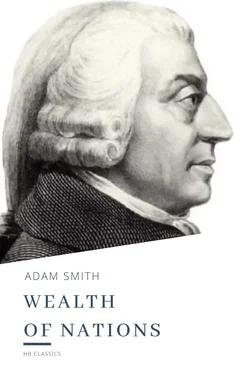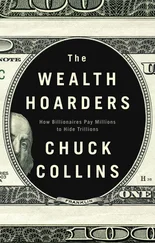Adam Smith - The Wealth of Nations
Здесь есть возможность читать онлайн «Adam Smith - The Wealth of Nations» — ознакомительный отрывок электронной книги совершенно бесплатно, а после прочтения отрывка купить полную версию. В некоторых случаях можно слушать аудио, скачать через торрент в формате fb2 и присутствует краткое содержание. Жанр: unrecognised, на английском языке. Описание произведения, (предисловие) а так же отзывы посетителей доступны на портале библиотеки ЛибКат.
- Название:The Wealth of Nations
- Автор:
- Жанр:
- Год:неизвестен
- ISBN:нет данных
- Рейтинг книги:4 / 5. Голосов: 1
-
Избранное:Добавить в избранное
- Отзывы:
-
Ваша оценка:
The Wealth of Nations: краткое содержание, описание и аннотация
Предлагаем к чтению аннотацию, описание, краткое содержание или предисловие (зависит от того, что написал сам автор книги «The Wealth of Nations»). Если вы не нашли необходимую информацию о книге — напишите в комментариях, мы постараемся отыскать её.
Introduction and plan of the work
Part 1 Of the Causes of Improvement in the productive Powers of Labour, and of the Order according to which its Produce is naturally distributed among the different Ranks of the People
Chapter 1 Of the Division of Labour
Chapter 2 Of the Principle which gives Occasion to the Division of Labour
Chapter 3 That the Division of Labour is limited by the Extent of the Market
Chapter 4 Of the Origin and Use of Money
Chapter 5 Of the real and nominal Price of Commodities, or of their Price in Labour, and their Price in Money
Chapter 6 Of the component Parts of the Price of Commodities
Chapter 7 Of the natural and market Price of Commodities
Chapter 8 Of the Wages of Labour
Chapter 9 Of the Profits of Stock
Chapter 10 Of Wages and Profit in the different Employments of Labour and Stock
Chapter 11 Of the Rent of Land
1. First Period
2. Second Period
3. Third Period
4. First Sort
5. Second Sort
6. Third Sort
7. Conclusion of the chapter
Part 2 Of the Nature, Accumulation, and Employment of Stock
Chapter 1 Of the Division of Stock
Chapter 2 Of Money considered as a particular Branch of the general Stock of the Society, or of the Experience of maintaining the National Capital
Chapter 3 Of the Accumulation of Capital, or of productive and unproductive Labour
Chapter 4 Of Stock lent at Interest
Chapter 5 Of the different Employment of Capitals
Part 3 Of the different Progress of Opulence in different Nations
Chapter 1 Of the Natural Progress of Opulence
Chapter 2 Of the Discouragement of Agriculture in the ancient State of Europe after the Fall of the Roman Empire
Chapter 3 Of the Rise and Progress of Cities and Towns, after the Fall of the Roman Empire
Chapter 4 How the Commerce of the Towns contributed to the Improvement of the Country
Part 4 Of Systems of political Economy
Chapter 1 Of the Principle of the commercial, or mercantile System
Chapter 2 Of Restraints upon the Importation from foreign Countries of such Goods as can be produced at Home
Chapter 3 Of the extraordinary Restraints upon the Importation of Goods of almost all Kinds, from those Countries with which the Balance is supposed to be disadvantageous
1. Of the Unreasonableness of those Restraints even upon the Principles of the Commercial System
2. Of the Unreasonableness of those extraordinary Restraints upon other Principles
Chapter 4 Of Drawbacks
Chapter 5 Of Bounties
Chapter 6 Of Treaties of Commerce
Chapter 7 Of Colonies
1. Of the Motives for establishing new Colonies
2. Causes of Prosperity of New Colonies
3. Of the Advantages which Europe has derived from the Discovery of America, and from that of a Passage to the East Indies by the Cape of Good Hope
Chapter 8 Conclusion of the Mercantile System
Chapter 9 Of the Agricultural Systems, or of those Systems of Political Economy, which represent the Produce of Land, as either the sole or the principal Source of the Revenue and Wealth of every Country
Part 5 Of the Revenue of the Sovereign or Commonwealth
Chapter 1 Of the Expences of the Sovereign or Commonwealth
1. Of the Expense of Defence
2. Of the Expense of Justice
3. Of the Expense of Public Works and Public Institutions
4. Of the Expense of Supporting the Dignity of the Sovereign
5. Conclusion
Chapter 2 Of the Sources of the general or public Revenue of the Society
1. Of the Funds or Sources of Revenue which may peculiarly belong to the Sovereign or Commonwealth
2. Of Taxes
Chapter 3 Of public Debts
AUDIO BOOK












